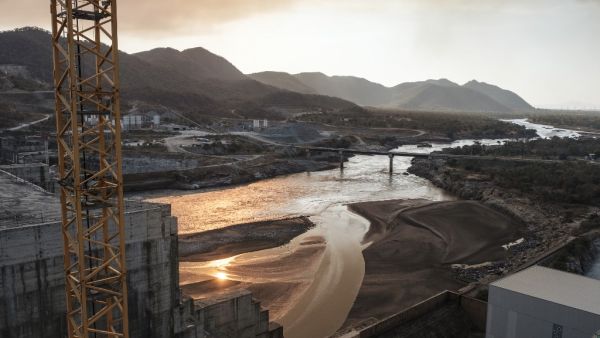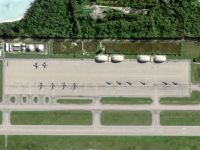Ethiopia’s water minister denied reports Wednesday that the government had begun filling a massive hydroelectric dam that has caused severe tensions with Egypt and led some to fear military conflict, while Cairo swiftly asked for clarification.
Media outlets reported the government had begun filling after Minister Sileshi Bekele confirmed to the Ethiopian Broadcasting Corporation that satellite images from recent days showed the dam’s reservoir swelling.
The minister told The Associated Press, however, that the images reflected heavy rains, saying that inflow was greater than the outflow. He later tweeted saying it had created “natural pooling.”
On Tuesday, International Crisis Group analyst William Davison told the AP that images captured on July 9 by a European Space Agency satellite likely show a “natural backing-up of water behind the dam.”
But neighboring Sudan on Wednesday expressed skepticism. Its Irrigation Ministry said in a statement that water levels at its al-Dayem station on the Blue Nile showed a decline of 90 million cubic meters per day “that confirms the closure of the dam’s gates.”
The ministry reiterated Sudan’s rejection to “any unilateral measures” as efforts to reach a deal continue.
And Ahmed Hafez, a spokesman for Egypt’s foreign ministry, said Cairo has asked for an “official clarification” from Ethiopia to the minister's comments.
Ethiopia’s latest round of talks with Egypt and Sudan on an agreement over the operation of the $4.6 billion Grand Ethiopian Renaissance Dam failed early this week.
Ethiopia has said it would begin filling the dam's reservoir this month even without a deal as the rainy season floods the Blue Nile.
Ethiopia says the dam offers a critical opportunity to pull millions of its nearly 110 million citizens out of poverty. Downstream Egypt, which depends on the Nile to supply its farmers and booming population of 100 million with fresh water, asserts that the dam poses an existential threat.
Years of talks with a variety of mediators, including the Trump administration, have failed to produce a solution. Last week’s round, mediated by the African Union and observed by US and European officials, proved no different.
Sudanese Irrigation Minister Yasser Abbas on Monday said the parties were “keen to find a solution,” but technical and legal disagreements persist over its filling and operation.
Most important, he said, are the questions about how much water Ethiopia will release downstream if a multi-year drought occurs and how the countries will resolve any future disputes. Ethiopia rejects binding arbitration at the final stage.
Davison with the International Crisis Group said Wednesday that the next step in the dispute is for the AU to assess progress and propose a way forward. “Hopefully that will lead to talks reconvening next week,” he said.
Incremental progress is being made, he added, "and it’s critical that the parties remain locked in talks and that there is no further diplomatic escalation.”
This article has been adapted from its original source.








